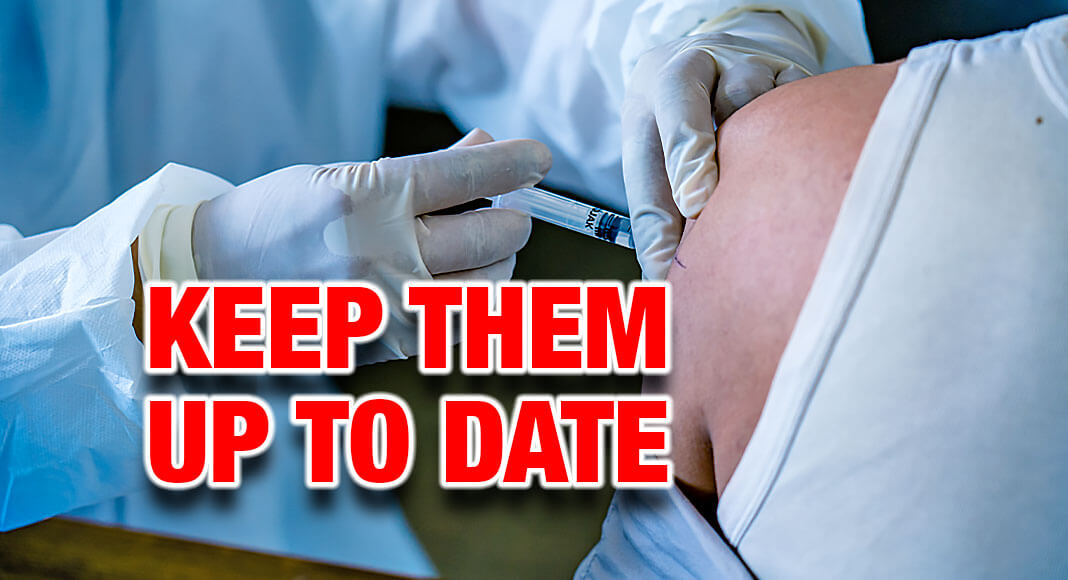
Mega Doctor News
What You Need to Know
CDC recommends COVID-19 vaccines, including boosters, for everyone ages 5 years and older.
People who are moderately or severely immunocompromised have specific recommendations for COVID-19 vaccines, including boosters. Learn more about COVID-19 vaccine recommendations for people who are moderately or severely immunocompromised.
Use CDC’s COVID-19 booster tool to learn if and when you can get boosters to stay up to date with your COVID-19 vaccines.
The following COVID-19 vaccine and booster recommendations may be updated as CDC continues to use the latest data related to safety and how well vaccines work, including over time and against new variants.
About COVID-19 Vaccines
COVID-19 vaccines available in the United States are effective at protecting people—especially those who are boosted— from getting seriously ill, being hospitalized, and even dying. As with other diseases, you are protected best from COVID-19 when you stay up to date with the recommended vaccines.
Approved or Authorized Vaccines
Three COVID-19 vaccines are used in the United States to prevent COVID-19. Pfizer-BioNTech or Moderna are COVID-19 mRNA vaccines and are preferred. You may get Johnson & Johnson’s Janssen (J&J/Janssen) COVID-19 vaccine in some situations.
Pfizer-BioNTechModernaJohnson & Johnson’s Janssen
When Are You Up to Date?
You are up to date with your COVID-19 vaccines when you have received all doses in the primary series and all boosters recommended for you, when eligible.
Vaccine recommendations are different depending on your age, the vaccine you first received, and time since last dose, as shown below.
Learn more about COVID-19 vaccine recommendations specifically for people who are moderately or severely immunocompromised.
Adults ages 18 years or older
Pfizer-BioNTech
Moderna
Johnson & Johnson’s Janssen
Children and teens ages 12–17 years
Pfizer-BioNTech
Children ages 5–11 years
Pfizer-BioNTech
Talk to your healthcare or vaccine provider about the timing for the 2nd dose in your primary series.
People ages 5 through 64 years, and especially males ages 12 through 39 years, may consider getting the 2nd primary dose of an mRNA COVID-19 vaccine (Pfizer-BioNTech or Moderna; Pfizer-BioNTech only for children ages 5 through 17 years) 8 weeks after the 1st dose. A longer time between the 1st and 2nd primary doses may increase how much protection the vaccines offer, and further minimize the rare risk of heart problems, including myocarditis and pericarditis.
People ages 65 years and older, people more likely to get very sick from COVID-19, or anyone wanting protection due to high levels of community transmission should get the 2nd primary dose of Pfizer-BioNTech COVID-19 vaccine 3 weeks (or 21 days) after the 1st primary dose, or the 2nd primary dose of Moderna COVID-19 vaccine 4 weeks (or 28 days) after the 1st primary dose.
You are also considered up to date if:
You have completed your primary series – but are not yet eligible for a booster
You have received 1 booster but are not recommended to get a 2nd booster
You have received 1 booster but are not yet eligible for a 2nd booster
Stay up to date by getting all recommended boosters when you are eligible.
Mixing COVID-19 Vaccine Products
CDC does not recommend mixing products for your primary vaccine series.
If you received the first dose of a Pfizer-BioNTech or Moderna COVID-19 vaccine, you should get the same product for your 2nd shot in the primary series. People ages 18 years and older may get a different product for a booster. Children and teens ages 5 through 17 years must get Pfizer-BioNTech for a booster.
Timing of COVID-19 Vaccination After Infection
People who have COVID-19 should wait to receive any vaccine, including a COVID-19 vaccine, until after they recover and complete their isolation period.
Additionally, people who recently had COVID-19 may consider delaying their next vaccine dose (primary dose or booster) by 3 months from when their symptoms started or, if they had no symptoms, when they first received a positive test. Reinfection is less likely in the weeks to months after infection. However, certain factors, such as personal risk of severe disease, local COVID-19 community level, and the most common COVID-19 variant currently causing illness, could be reasons to get a vaccine sooner rather than later.
Talk to your healthcare professional if you have questions about when to get your next COVID-19 vaccine.
Vaccination Outside the United States
If you received COVID-19 vaccines outside the United States, whether you are up to date depends on which COVID-19 vaccine (and how many doses) you received. Learn more about when people vaccinated outside the United States are considered fully vaccinated.
Allergic Reaction to a COVID-19 Vaccine Product
If you had a severe allergic reaction after a previous dose of a COVID-19 vaccine or if you have a known (diagnosed) allergy to a COVID-19 vaccine ingredient, you should not get that vaccine. If you have been instructed not to get one type of COVID-19 vaccine, you may still be able to get another type.
Scheduling Your COVID-19 Vaccines
Find a COVID-19 vaccine or booster: Search vaccines.gov, text your ZIP code to 438829, or call 1-800-232-0233 to find locations near you.
There are several ways you can find a vaccine provider. You can get your COVID-19 vaccines at the same location, or different locations.
If you need help scheduling your 2nd primary dose or a booster, contact the location that set up your previous appointment. It is never too late to get the added protection offered by completing your primary series or getting a COVID-19 booster.
Some community vaccination clinics have closed. You can get your 2nd primary dose or a booster at a different location.
Learn more about getting your COVID-19 vaccine.








